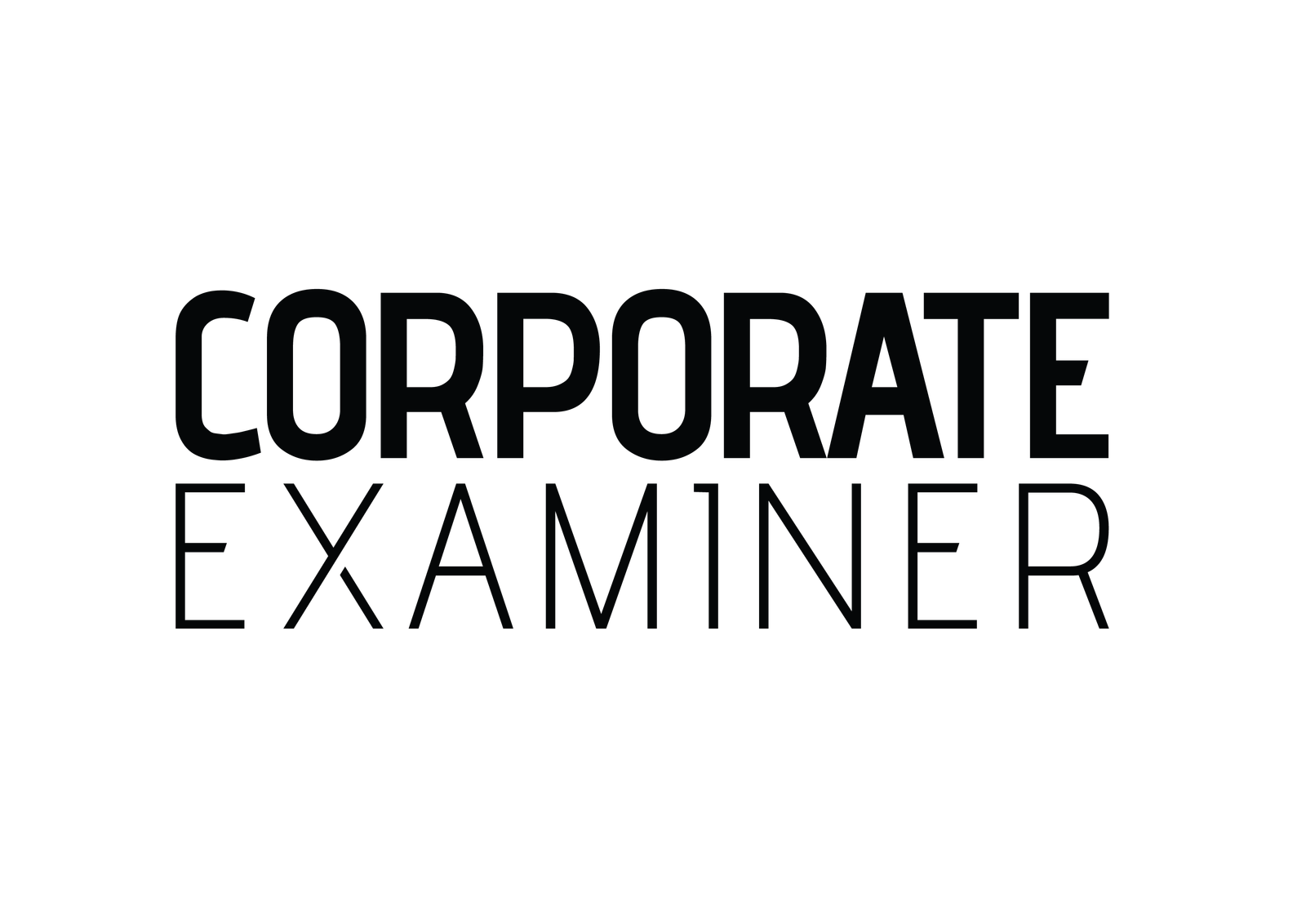Corporate compliance programs are key for businesses to follow the law and make ethical choices. The U.S. Department of Justice (DOJ) says these programs must be well-made, funded, and work well. They help companies deal with tough rules, lower fines, and build trust with others.
The DOJ checks these programs during investigations. This affects how much they might fine a company. They use rules like U.S.S.G. §§8B2.1 and 8C2.5(f) to decide.
Recently, the DOJ updated its rules in September 2024. They talk about dealing with new risks like AI and creating a safe place for people to speak up. Companies like Lafarge SA, which was fined $778 million in 2022 for breaking anti-terror laws, show what happens when compliance fails.
Good programs now need to stop retaliation, check risks, and train people well. This includes training for top leaders. They must review things every year, have secret ways for people to report, and make sure rewards match up with doing the right thing.
Key Takeaways
- DOJ evaluates compliance programs during investigations, impacting fines and charges.
- 2024 DOJ ECCP updates focus on AI risks, anti-retaliation policies, and speak-up cultures.
- Large fines, like Lafarge’s $778M penalty, highlight consequences of noncompliance.
- Annual risk assessments and training are critical to meeting DOJ standards.
- Confidential reporting mechanisms and anti-retaliation policies are now mandatory in updated guidelines.
Readers will learn how to create strong corporate compliance programs. They will see how to meet DOJ rules and avoid fines. The next parts will talk about making compliance programs, training, audits, and new trends like using AI.
What Are Corporate Compliance Programs?
Corporate compliance programs are key to ethical business practices. They are formal systems that guide companies to follow laws and ethical standards. These programs help employees and partners understand and follow rules that protect everyone involved.
“Conducting a risk assessment at least once a year helps manage compliance risks effectively.” – Association of Corporate Counsel (ACC)
Definition and Importance
Corporate compliance programs mix policies, training, and oversight to prevent violations. They are more than just legal rules. They are connected to corporate governance, influencing decision-making at all levels. For example, the Foreign Corrupt Practices Act requires strict screening of third parties, showing how programs meet specific industry rules.
These programs help avoid risks like fines or damage to reputation. Studies show companies with strong compliance programs save up to 30% and see a 25% increase in employee awareness. They also build trust, as 65% of workers feel safer reporting misconduct anonymously. By making compliance part of daily work, businesses avoid penalties and create a culture of responsibility.
Benefits of Implementing Compliance Programs
Strong compliance management systems are key to a business’s success. The U.S. Department of Justice (DOJ) highlights this in its updated corporate governance standards. It shows how proactive programs can avoid expensive legal issues.
Since the DOJ updated its Evaluation of Corporate Compliance Programs (ECCP) in September 2024, companies with good frameworks face less penalties. Data shows that firms with strong compliance systems get better results. They often see reduced fines and less oversight.
Companies with effective compliance programs are more likely to receive favorable resolutions in enforcement actions.
Risk mitigation grows when compliance management and corporate governance work together. The DOJ’s latest guidance shows the importance of AI tools. Companies use data analytics to find AI-related risks, like fake documents, early on.
After the 2024 ECCP updates, firms must check vendors and mergers with compliance tech. This ensures risks are tracked from the start.
Whistleblower protections got stronger in the DOJ’s August 2024 Whistleblower Awards Pilot Program. Companies that focus on these policies see better internal accountability. The DOJ now looks at whether compliance teams use real-time data and adjust training for new tech risks.
By linking compliance with corporate governance, businesses gain trust from regulators and stakeholders. This turns compliance into a strategic advantage.
Understanding Compliance Regulations
Understanding regulatory requirements is key for companies. Laws like the Foreign Corrupt Practices Act (FCPA) and Sarbanes-Oxley Act (SOX) guide how businesses operate. These laws, enforced by the SEC and DOJ, ensure ethical standards and financial transparency.
Federal and State Regulations
The FCPA bans bribery in international deals. Since 2010, companies have paid over $2.48 billion in FCPA settlements. This shows the high cost of not following the rules.
The SOX Act, passed after Enron’s fall, requires strict financial reporting. State laws add more complexity. For example, California’s data privacy rules require companies to adjust their compliance management practices.
Healthcare and finance face special challenges. The Dodd-Frank Act, passed after the 2008 crisis, introduced the Volcker Rule and whistleblower protections. State laws, like New York’s anti-bribery laws, require regular audits. Companies must keep up with law changes, like updates to Dodd-Frank.
Regular audits and training help companies meet regulatory requirements. By following both federal and state laws, companies reduce risks. This shows they are serious about following the rules and keeps stakeholders’ trust.
Developing an Effective Compliance Program
Creating a strong compliance framework begins with a clear plan. Successful corporate compliance programs focus on structure and flexibility. Start by identifying risks through a detailed review of operations, markets, and laws. This step makes sure your compliance management plan tackles real issues.
“Does the program work in practice?” The Department of Justice’s third question highlights the importance of action over paperwork.
A five-step process leads to success: assess risks, draft policies, train staff, monitor progress, and report findings. Policies must follow federal and state laws, like New York’s 2023 rules. Training, updated yearly, raises awareness by 60%. Also, anonymous reporting tools increase violation reports by 40%.
Regular audits and third-party checks keep your program up-to-date. For example, switching to automated reporting systems cuts down on mistakes and tracks data better. Leaders must show they support the program—signing off on commitment statements shows they’re accountable.
Compliance is not a one-time thing. The DOJ stresses the need for ongoing improvement, suggesting reviewing policies every 12-18 months. Companies facing big fines, like the $2.48B FCPA case in 2016, could have avoided penalties with better programs.
Set clear goals in your annual plans, like cutting audit gaps by 25% each year. Surveys that check employee understanding and culture help keep everyone accountable. By mixing standard policies with flexible enforcement, your program can handle challenges while keeping your organization safe.
Training and Awareness Initiatives
Training and awareness are key to a culture of ethics and compliance. The U.S. Department of Justice (DOJ) says compliance training must fit each employee’s role. Using real-world examples and case studies helps staff make better choices every day.
Prosecutors assess whether companies deliver information tailored to audience size, sophistication, or expertise.
Good compliance training comes in many forms. For example, Skillsoft, used by over 1,800 organizations, offers online courses. LRN has 160+ modules, covering topics like anti-bribery and data protection. Microlearning and scenario-based exercises are more engaging than lectures.
Employee Training Programs
Programs vary based on risk and role. Healthcare teams need HIPAA training, while tech staff focus on cybersecurity. SCCE memberships, like its $275 group rate, offer resources. ECI certifications ($295 for members) enhance skills. Training also covers DEI and IP protection, reducing errors.
Regular training keeps staff up-to-date on laws, lowering penalties. Automation tools track deadlines, ensuring no lapses. Companies with strong programs see fewer violations and higher morale. When employees understand expectations, they become the first line of defense in upholding ethics and compliance.
Monitoring and Auditing Compliance
Regular compliance auditing is key to good compliance management. It makes sure policies match up with how things are done and what the law says. The Department of Justice says companies must show they check for wrongdoings often. This makes audits useful for improving, not just checking up.
“Does the company conduct periodic reviews and audits of its compliance program to detect misconduct?” — U.S. Department of Justice
Good compliance auditing includes four types: full reviews, spot checks, routine checks, and surprise audits. Each type looks at different risks. For example, a drug company might check clinical trial data often, while a tech company looks at data privacy.
Companies figure out where to focus by doing risk assessments. Areas like finance or healthcare need more checks. Technology helps by spotting problems right away, like issues with supplier contracts. This makes it easier to meet standards, like those in the UK.
Keeping an eye on things means watching KPIs like how well employees are trained or if vendors follow rules. Even small businesses can start with simple dashboards. It’s not about being perfect—it’s about showing you care. When audits find problems, fixing them quickly and finding the cause helps a lot. Remember, regulators like companies that keep getting better, not just those who never slip up.
Role of Compliance Officers
Corporate governance needs a solid ethics and compliance base. Compliance officers play a key role in building these systems. They mix legal knowledge with strategic thinking.
Their job is more than just enforcing rules. They advise on how to follow both laws and company values.
Roles like Corporate Compliance Officer or Chief Ethics and Compliance Officer (CECO) are crucial. They balance watching over things and working together. For instance, 80% of healthcare groups say having a dedicated compliance officer lowers legal risks.
These experts create policies, do audits, and train staff. Almost 75% of healthcare compliance officers see fewer problems after setting up strong programs.
Today’s compliance leaders also help shape corporate governance. They look ahead to changes in laws. They use data to spot risks and update policies as needed.
More than 55% of compliance officers use their past audit experience to plan ahead. Having certifications like the Certified in Healthcare Compliance (CHC) helps them prove their worth. About 25% of them have this certification.
Good officers spend about 30% of their time on audits. But their real impact is in building ethical cultures. Companies with strong programs see a 50% decrease in compliance issues. As the demand for them grows—expected to rise by 15% by 2030—their role becomes even more important. They help link legal rules with business aims for lasting success.
Responding to Compliance Violations
When compliance violations happen, it’s important to act quickly and fairly. Good corporate compliance programs see each issue as a chance to get better. The Department of Justice says that for compliance to work, employees must feel safe to report problems.

“The existence of occasional offenses does not imply that a compliance program is ineffective,” states the US Sentencing Guidelines. This shows that even the best programs can’t stop all problems. But they must tackle issues seriously when they happen.
Investigations need to follow a clear process. First, gather evidence and talk to those involved. Then, figure out why it happened. For small problems, local managers might fix it. But big issues need outside experts for fairness.
Teams should ask three important questions: What happened? Why did it happen? Does it show a bigger problem? These questions help decide how to fix it.
Discipline should match the company’s rules and the seriousness of the issue. The right punishment—like a warning, training, or firing—shows that breaking rules has consequences. If companies don’t act fast, they might face more fines and damage to their reputation.
Every case teaches something new about compliance management. For example, if a vendor scam shows weak checks, updating audits or training can help. Keeping compliance programs up to date with laws and risks is key.
Engaging Stakeholders in Compliance
Creating a culture of compliance is more than just having policies. It needs everyone’s active involvement, starting with leaders. Leaders must show ethical behavior to build trust in corporate governance. When executives make compliance a priority, employees see it as a core value, not just a task.
“A company’s compliance culture starts with its leaders,” emphasizes the Department of Justice, which evaluates whether top management actively champions ethical standards. This sets the tone for how well policies trickle down to daily operations.
Engaging stakeholders means aligning leadership’s goals with what happens on the ground. Middle managers use tools like PowerDMS software to keep track of training and policy updates. This ensures everyone is in the loop.
Regular meetings with leaders help spot where compliance needs work. They adjust strategies based on this. Metrics like how fast violations are fixed or certification status show progress.
Good corporate governance tackles different priorities. Boards might focus on risk, while employees want easy access to training. Sharing KPIs helps bridge these gaps. Annual policy reviews, as suggested by Risk Management Magazine, keep things fresh. When leaders back compliance, it becomes a natural part of the culture. This protects the company’s reputation and future success.
Measuring the Effectiveness of Compliance Programs
Corporate compliance programs do best when they show real results. The Department of Justice says to test controls, look at compliance data, and listen to employee feedback. It’s not just about counting training hours; it’s about seeing real change.
“The effectiveness of compliance programs is best measured through action, not activity.”
Important metrics include audit results, training completion rates, and reports of incidents. For example, 68% of employees tell managers about misconduct, showing the need for training for managers. Surveys show 93% of workers want to report issues, but only 46% do, pointing to a “trust gap” that KPIs can help fix.
Numbers like fewer misconduct incidents after training or better audit scores are important. But so are the feelings of employees, like how they see the company’s ethics. Good compliance programs use both to find where they need to improve. Regular audits can find problems early. Companies must show they are fixing these issues.
Top companies, like those named World’s Most Ethical Companies, use yearly surveys and feedback all the time. They don’t just count who shows up to training; they see if it changes behavior. Their metrics must match DOJ rules, showing they handle misconduct quickly.
Ignoring these standards can lead to fines. For example, 48% of employees see misconduct every month, but only half report it. KPIs like secret reporting channels or checking in after incidents help programs stay on track. By focusing on results, companies make compliance a part of their culture.
Trends and Challenges in Compliance
Corporate compliance programs are facing a rapidly changing world. New regulatory requirements and technologies like AI are at the forefront. Companies must now deal with AI ethics, ESG standards, and global data privacy laws.
The U.S. Department of Justice (DOJ) updated its 2020 guidance. It urges firms to identify risks tied to innovations like AI. This includes checking how new tools align with criminal laws, as the DOJ’s compliance evaluation criteria stress.
“The effectiveness of a corporate compliance policy significantly influences how a company is charged and how offenses are resolved.” – U.S. Department of Justice
Global regulatory requirements are expanding. The EU’s CSDDD directive, set to start in 2024, requires large firms to check their supply chains. AI adoption offers both benefits and risks. A 2024 report shows AI could save $3.13 trillion annually in fraud detection but needs strict oversight.
Cybersecurity breaches and money laundering are also major concerns. In 2024, $5.6 billion was lost to U.S. cyber fraud. This highlights the need for strong systems.
Compliance consulting firms are key in this changing landscape. They help businesses keep up with laws like the UK’s 2025 Economic Crime Bill. This bill requires identity checks for new companies.
Training IT teams and third-party vendors is also crucial. For instance, the DOJ now holds companies accountable for vendors on restricted lists. This increases the need for thorough due diligence.
Despite the hurdles, proactive compliance consulting can make compliance a competitive edge. By using AI tools and ESG practices, organizations can lower risks and gain trust. The future demands agility, teamwork with experts, and a focus on long-term resilience in a constantly changing legal world.
Future of Corporate Compliance Programs
Technology and innovation are changing how companies follow ethical standards. The U.S. Department of Justice updated its Evaluation of Corporate Compliance Programs (ECCP) in September 2024. This update highlights the importance of technology in managing risks like AI and data security.
Companies now see compliance software as key to meeting regulatory needs and encouraging innovation.
Innovations in Compliance Technology
Compliance software is getting smarter, using AI and blockchain for real-time risk checks. These tools automate audits and track policy compliance. For example, AI can spot unusual communication patterns, and machine learning can spot fraud in supplier data.
The DOJ now expects companies to show how their AI and data security practices meet ethical and legal standards.
Experts in compliance consulting are crucial in this change. They help companies use new technologies like natural language processing and predictive models. Microsoft’s early adoption of GDPR shows how tech can build trust and give a competitive edge.
The DOJ’s ECCP now requires compliance teams to have direct access to important data. This ensures audits are proactive and strategic, not just reactive.
By 2025, compliance will be a driver of innovation, not just a cost. Companies that integrate compliance into their culture through training and technology will see fewer breaches and a better reputation. The DOJ’s focus on whistleblower protections and adaptive risk assessments means compliance teams must balance human oversight with automation.
Those who partner with compliance consulting firms to tailor their programs to their risks will lead in this new era.
As regulations become more complex, combining compliance software with ethical leadership will help businesses succeed. The future belongs to those who see compliance as a foundation for growth, resilience, and innovation.
FAQ
What are corporate compliance programs and why are they important?
What are some of the key benefits of implementing compliance programs?
How can organizations develop an effective compliance program?
What types of training should be included in compliance programs?
Why are monitoring and auditing important in compliance?
What role do compliance officers play in organizations?
How should organizations respond to compliance violations?
How can organizations engage stakeholders in compliance efforts?
What metrics should be used to measure the effectiveness of compliance programs?
What are the current trends and challenges in corporate compliance?
How is technology influencing the future of compliance programs?
Source Links
- PDF – https://www.justice.gov/criminal/criminal-fraud/page/file/937501/dl?inline=
- DOJ Evaluation of Corporate Compliance Programs – September 2024 Updates, Changes and What It Means for Compliance Programs – https://ethisphere.com/doj-2024-compliance-updates/
- Determining Whether Your Corporate Compliance Program is “Good Enough” – https://corpgov.law.harvard.edu/2022/12/14/determining-whether-your-corporate-compliance-program-is-good-enough/
- What is Corporate Compliance and Why is it Important? – https://www.powerdms.com/policy-learning-center/what-corporate-compliance-is-and-why-its-important
- Compliance Program Basics – https://oig.hhs.gov/newsroom/oig-podcasts/compliance-program-basics/
- Key Updates to the DOJ’s Evaluation of Corporate Compliance Programs | Insights | Skadden, Arps, Slate, Meagher & Flom LLP – https://www.skadden.com/insights/publications/2024/09/key-updates-to-the-dojs-evaluation-of-corporate-compliance-programs
- DOJ Releases Updated Evaluation of Corporate Compliance Programs Guidance – https://www.millerchevalier.com/publication/doj-releases-updated-evaluation-corporate-compliance-programs-guidance
- Corporate Compliance Programs: Everything You Need to Know | GAN – https://www.ganintegrity.com/resources/blog/corporate-compliance-program/
- Corporate Compliance Laws and Regulations You Should Know – https://online.law.pitt.edu/blog/corporate-compliance-legislation
- How to Implement a Corporate Compliance Program – https://online.law.pitt.edu/blog/how-to-implement-corporate-compliance-program
- Mitigate Risk by Developing, Implementing, and Maintaining an Effective Compliance Program – https://www.bonadio.com/article/mitigate-risk-by-developing-implementing-and-maintaining-an-effective-compliance-program/
- 5 Best Compliance Training Programs in 2024 – https://www.onboardmeetings.com/blog/compliance-training-programs/
- Compliance Training for Employees: Guide & 9 Types | Rippling – https://www.rippling.com/blog/compliance-training-for-employees
- The significance of audit and monitoring in a compliance programme – https://globalinvestigationsreview.com/guide/the-guide-compliance/third-edition/article/the-significance-of-audit-and-monitoring-in-compliance-programme
- What is compliance monitoring and why is it important? – https://www.diligent.com/resources/blog/the-importance-of-compliance-monitoring
- What does a corporate compliance officer do? – Thoropass – https://thoropass.com/blog/compliance/what-does-corporate-compliance-officer-do/
- The Vital Role of Compliance Officers in Healthcare Organizations – https://medtrainer.com/blog/compliance-officer/
- Reacting Appropriately to Compliance Problems — GAN Integrity blog – https://www.ganintegrity.com/resources/blog/reacting-appropriately-to-compliance-problems/
- Protecting value with your compliance and response program – https://rsmus.com/insights/services/financial-management/protecting-value-with-your-compliance-and-response-program.html
- Six Tips for Creating a Positive Relationship With Your Compliance Stakeholders | AuditBoard – https://www.auditboard.com/blog/creating-a-positive-relationship-with-your-compliance-stakeholders/
- How compliance provides stakeholders evidence of success | TechTarget – https://www.techtarget.com/searchcio/tip/How-compliance-provides-stakeholders-evidence-of-success
- How to Build & Implement a Compliance Program? | PowerDMS – https://www.powerdms.com/policy-learning-center/how-to-create-an-effective-compliance-program
- How Can You Measure a Compliance Program’s Effectiveness? – Ethico – https://ethico.com/blog/how-can-you-measure-a-compliance-programs-effectiveness/
- Defining and Measuring Effectiveness: Responding to the DOJ’s Evaluation of Corporate Compliance Programs Speak Up Guidance – https://ethisphere.com/doj-speak-up-guidance-effectiveness/
- Measuring Compliance Program Effectiveness — GAN Integrity blog – https://www.ganintegrity.com/resources/blog/measuring-compliance-program-effectiveness/
- Corporate Compliance Trends and Challenges You Should Know – https://online.law.pitt.edu/blog/corporate-compliance-law-trends
- Top 10 Compliance Challenges in 2025 | Skillcast – https://www.skillcast.com/blog/top-10-compliance-challenges-2025
- The Future of Compliance Is Proactive — Here’s How to Lead the Way – https://www.corporatecomplianceinsights.com/future-compliance-proactive-how-lead-way/
- Compliance Programs Expected to Evolve With Technology: DOJ Updates Corporate Compliance Guidance to Include Artificial Intelligence | Data Matters Privacy Blog – https://datamatters.sidley.com/2024/10/08/compliance-programs-expected-to-evolve-with-technology-doj-updates-corporate-compliance-guidance-to-include-artificial-intelligence/
- Duane Morris LLP – Four Key Updates to the DOJ’s Evaluation of Corporate Compliance Programs – https://www.duanemorris.com/alerts/four_key_updates_dojs_evaluation_corporate_compliance_program_will_your_company_withstand_0924.html







